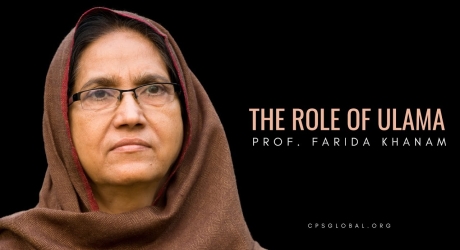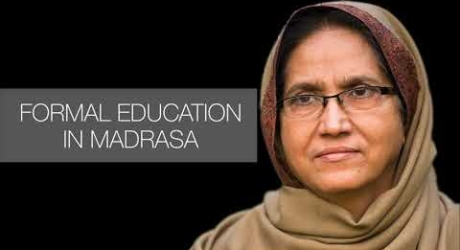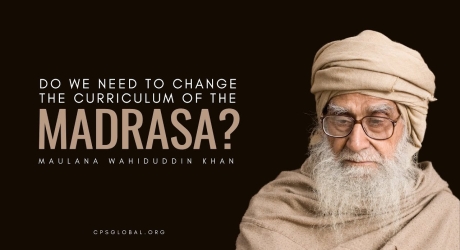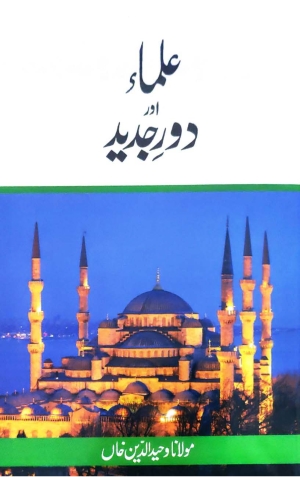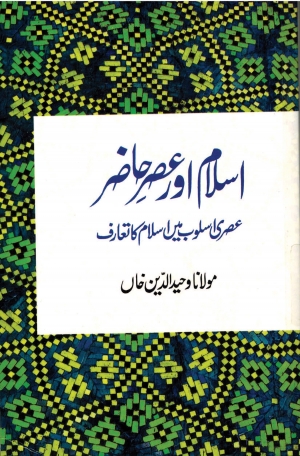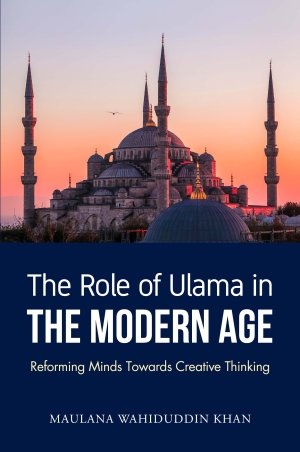Maulana Wahiduddin Khan said that the Ulama or Islamic scholars are eternal guardians of people's mental fabric, way of thinking, attitude, and behaviour. Being charged with this role, religious scholars should impart education to people. It is a fact that people think and act according to their bent of mind. The role of Ulama is to direct the mindset of people towards the right thinking and guide them to the right path. Moreover, if the thinking of individuals in society is right, their actions will also be right; if the state of the individuals, a unit of society, is good, society will inevitably be good.
The role of the Ulama is to lay the foundation of society by developing right-thinking in individuals, and political governance is the superstructure that rests on this foundation. To perform their role, Maulana advised the Ulama to completely dissociate from practical politics, develop the spirit of tolerance, accept open criticism, understand the positive contribution of the modern age, engage in scholarship after a deep understanding of modern thought, reform the minds of the Muslim ummah on positive lines and convey God's message to humanity using the opportunities presented by the modern age.
Featured Articles
Featured Videos
FAQs
Following the Islamic commandments, I advise the Ulama to completely dissociate from practical politics, develop the spirit of tolerance, accept open criticism, understand the positive contribution of the modern age, engage in scholarship after a deep understanding of modern thought, reform the minds of the Muslim ummah on positive lines and convey God’s message to humanity using the opportunities presented by the modern age.
Religious scholars are charged with being eternal guardians of people’s mental fabric, their way of thinking, attitude, and behaviour. To perform this role of intellectual leadership, they must possess a deeper understanding of the times and the capacity to engage in ijtihad, creative interpretation of Islamic sources, and their application in changed circumstances. Then they will be able to engage in scholarship, reform the minds of the Muslim ummah towards right thinking and undertake dawah work, conveying God’s message to people.
The task of inviting people to God is so essential that if it is abandoned, the whole Muslim community will lose all value in God’s eyes. The Western civilisation has brought in powerful opportunities to convey God’s message to people. From the ideological point of view, the scientific revolution has opened a new door for human beings to realise the Creator through direct study and observation of creation. Through this scientific revolution, the divine signs revealed to man have made possible the achievement of a high degree of divine realisation.
From the material point of view, the discoveries of the West have led to many inventions that can be used to convey God’s message to all of humanity, especially the modern means of travel and communication. In this way, modern science became a robust academic and material tool in the hands of those who were engaged in conveying God’s message to people and sharing the message of Islam with them.
I advise all the Ulama to completely dissociate from practical politics, develop the spirit of tolerance, accept open criticism, understand the positive contribution of the modern age, engage in scholarship after a deep understanding of modern thought, reform the minds of the Muslim ummah on positive lines and convey God’s message to mankind using the opportunities presented by the modern age.
I think this is a very welcome development. However, it needs to be done in a more organized way. What many of these institutions lack are good teachers motivated by missionary zeal. It won’t do to have just professional tutors. I strongly feel that more important than the curriculum are the teachers. In my days in the Madrasa tul-Islah in Azamgarh, we had teachers who worked with missionary passion.
They instilled in us the spirit of inquiry, which is the mother of all knowledge and without which you cannot progress. This tradition must be revived. Presently, we have no institutes for training madrasa teachers. They need to be trained in pedagogical techniques, child development, and so on. I think this is one issue that Muslim organizations must focus on.
Source: Spirit of Islam April 2014
In my childhood, this dualism was not so apparent. At that time, the secular educational system did not lack ethical or moral values, but today the situation is very different. I suppose this is a result of wider social changes. You cannot create an institution like an island. Neither madrasas nor secular schools are islands, cut off from the outside world. They are both influenced by the wider society.
A feasible way to overcome this educational dualism is by promoting greater interaction between students and teachers of madrasas and those of schools and colleges, including both Muslims and others. In the past, there was this sort of interaction. Many Hindus used to study in madrasas', but not so now. Presently, there is very little such interaction between the ulema and products of secular educational institutions, and that is one reason why there is such a glaring lack of understanding between them.
Source: Spirit of Islam April 2014
Interaction between the two will be very fruitful. Interaction, based on a spirit of scientific enquiry and learning, is a major source of change and progress. Through interaction with others, based on the quest for knowledge, you can refine your morals and learn to recognize and respect others as fellow human beings. This is precisely what Islam teaches us.
To enable madrasas and their students to interact with others and for them to come out of the four walls of their seminaries the best way is to inculcate in them the dawah spirit. For this, madrasas can arrange seminars and conferences, to which they can invite people of other faiths as well as Muslims and others from colleges and universities. This sort of interaction will be a great means of promoting knowledge on both sides and will go a long way in dispelling mutual misunderstandings.
Take my own example. Every day, I interact with people, of various social and religious backgrounds. I consider this a blessing. It provides me with knowledge, sensitivity to the humanity of others, rich experiences, and moral values.
Source: Spirit of Islam April 2014


